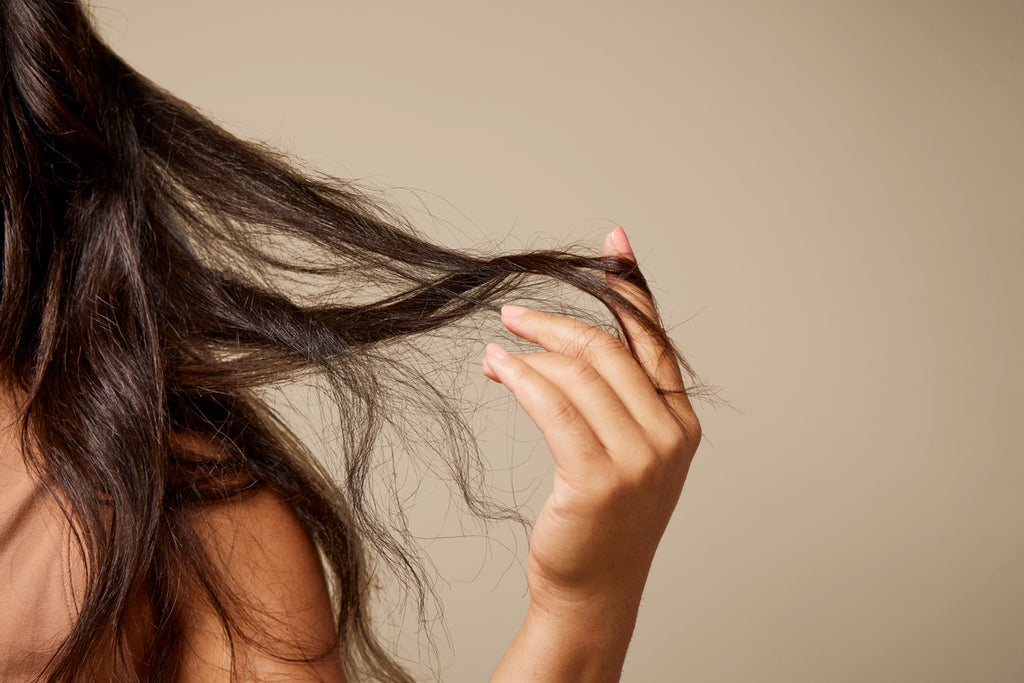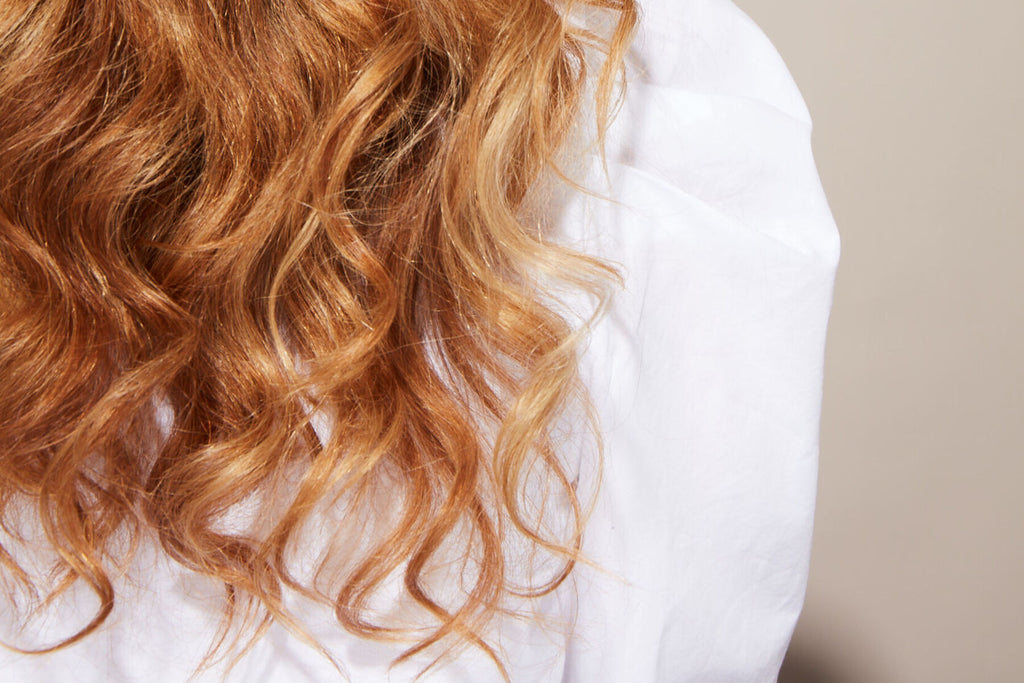Dealing with dry hair? We know how frustrating it can be when your hair isn’t living up to its full potential. From weather to styling habits, there are several reasons your hair could be missing out on moisture. Keep reading to learn what causes dry hair and how to restore its natural health and shine.
Signs of dry hair
Overly dry hair tends to tangle easily, feel brittle and invite frizz, breakage and split ends. Dull, lackluster locks and an itchy, flaky scalp can also hint that it’s time to step up your moisture game. (Here’s how to tell the difference between dry scalp flakes and dandruff, which is something different.)
Why is my hair so dry?
1. Too much heat
Each of your strands has a protective outer layer called a cuticle that helps it retain moisture and strength. Too much heat—whether from the summer sun or your styling tools—can strip this layer away. A damaged cuticle leaves your strands more porous, which means they’ll have a harder time keeping moisture in.
What to do: Slip on a hat if you’re going to be spending a lot of time in the sun. Next time you reach for your blow dryer or flat iron, make sure to also reach for a heat protectant to minimize damage. Or, take a break from hot tools altogether and embrace the air dry life!
2. Dry weather
There’s a reason your hair tends to feel drier in the winter: Cold weather can suck moisture right out of your strands. Cold air holds less moisture than warm air, so the lack of humidity in the air, coupled with the dry heat you might be blasting indoors, can make it hard to keep your hair hydrated.
What to do: Use a hair mask for a deep dose of moisture during dry months. Consider running a humidifier indoors if the air is extra parched. Keep tabs on how your hair reacts to seasonal weather changes so you can tweak your routine accordingly.
3. Chemical treatments
Anything that damages your hair can also dry it out—including chemical treatments like dyes, perms and relaxers. Similar to heat styling, these treatments weaken the hair's structure and make it harder for strands to retain moisture.
What to do: To combat dryness and damage after a chemical treatment, scale back how often you wash your hair and switch to a more hydrating routine. Throw in a weekly deep conditioning mask to restore lost moisture and strengthen your strands.
4. Hair products
There are a few ways your hair products could be drying you out. One is ingredients—drying ones to steer clear of include sulfates (usually found in shampoos) and short-chain alcohols when used as an active ingredient (benzyl alcohol is one commonly found in styling gels).
Also, check that you’re using the right products for your hair type. Curly and coily strands need more moisture since it's harder for products and natural oils from the scalp to coat their spiraled shapes. So while one product might be a holy grail moisturizer for straight or wavy hair, it may not cut it for tighter textures.
What to do: Choose hair products with gentle, non-drying ingredients. Get familiar with your hair type so you can find the right moisture balance for your strands.
5. Over-washing your hair
Washing your hair too frequently can strip away the natural oils that help keep it healthy and shiny. Your ideal shampoo schedule will depend on your hair type, styling habits, age and other factors—here are some tips for figuring out a good frequency.
What to do: Aim to wash your hair less often, and use a gentle, hydrating shampoo that won’t dry it out. A good dry shampoo can help you refresh your roots between wash days.
6. Product buildup
Another less obvious cause of dry hair is product buildup—the result of over-applying products or under-cleansing your hair.
As mentioned above, washing dry hair less often may help it maintain moisture, but it can also have the opposite effect if you leave lots of residue on your strands. Product buildup blocks moisture from penetrating the hair, which means your conditioner and leave-in products won’t be able to nourish your hair properly. The result? Stiff, dry strands.
What to do: While it’s important to avoid over-washing your hair, it’s equally important to cleanse it thoroughly when wash day does roll around. Consider adding a clarifying shampoo to your routine to help reset your hair from drying buildup. Ours gives a gentle deep clean, so it’s less likely to strip hair that’s already dry.
7. Health and diet
Your overall health and diet can also impact your hair’s moisture levels. Sometimes, dry hair is a side effect of a nutrient deficiency or other health condition. Similarly, if you’re dealing with dehydration in your body, it can show up in your hair, too.
What to do: Drink plenty of water and eat a balanced diet rich in vitamins and minerals to support strong, healthy hair. And as always, consult your doctor if you’re concerned about an underlying health condition.
8. Age
Drier hair is also a natural result of aging. As lipid production slows down with age, the body loses its ability to retain moisture, leading to increased dryness. (On the bright side, you’ll be able to go longer between shampoos!)
What to do: Be gentle with your tresses. See if it makes sense to add deeper moisture to your haircare routine. The products in our Repairing collection are specifically formulated for dry, damaged strands.











